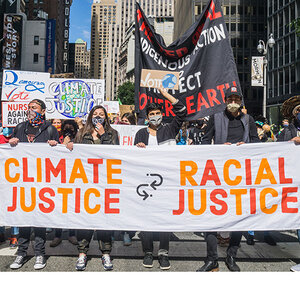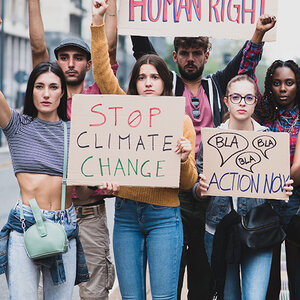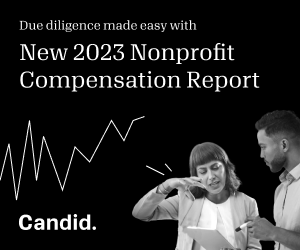Building equity and justice: An alternative model for grantmaking for environmental organizations

Philanthropy and grantmaking has the power to change our world by addressing inequity and injustice—that is, if the sector is first able to rid itself of deep-seated inequities. Recent research from Yale University by Dr. Dorceta Taylor and Molly Blondell confirms what many of us have long observed and experienced in grantmaking: The systems we operate within are broken.
The groundbreaking research analyzed grantmaking by 220 foundations in 35 states between 2015 and 2017 and found that over 80 percent of grants and grant dollars were awarded to white-led environmental organizations. Organizations led by white men received 61 percent of awarded funds. General support grants are critical to creating sustainable change, yet organizations led by people of color are disproportionately overlooked, with more than 80 percent of general support grants going to white-led organizations. Not only that, but organizations whose efforts are focused primarily on people of color received less than 10 percent of general support grants. Consequently, organizations supporting communities of color are severely under-resourced, leading to overworked staff, burnout, and unsustainable mode of operations that’s dependent on project-based, short-term funding with specific deliverables.
The study also highlighted that environmental organizations with annual budgets under $1 million receive less than 4 percent of total grant dollars, with the majority going to organizations with revenues of $20 million or more. This means that some of the biggest organizations are getting the most funding while smaller, community-level organizations are being left behind.
There are more equitable and sustainable ways of grantmaking. At Justice Outside, we’ve developed a model that could serve as an example for other grantmaking organizations.
For the past decade, Justice Outside has been working diligently to transform how organizations in the outdoors and environmental sector are funded. Through our Liberated Paths grantmaking program, we’ve redefined the norm in terms of both recipients and funding approaches. In 2022, the program awarded $2.5 million to 116 organizations in the environmental and outdoors movements, 91 percent of them led by BIPOC (Black, Indigenous, and people of color) leaders. Furthermore, all the supported organizations work within communities of color to address their unique needs and perspectives. We know from experience that community-based organizations working with people of color, organizations that tend to have the biggest impact on the ground, operate on small, shoestring budgets. Those are the organizations given the crumbs in the current philanthropic landscape. That’s why 88 percent of the organizations we support through our Liberated Paths grantmaking program have an annual operating budget of less than $1 million.
We also know that supporting community organizations, where community-led and -backed solutions are championed, takes more than giving money. We must change the way we fund.
Justice Outside's grantmaking extends beyond numbers, emphasizing reparative practices. By eliminating barriers such as the requirement of 501(c)(3) nonprofit status or fiscal sponsorship, we make it easier for community-based and community-led organizations to access funds. The application process is designed to be accessible through various media, including audio, video, and written applications, prioritizing brevity and simplicity. Moreover, we collaborate closely with grantee partners to ensure programming aligns with community needs and preferences, recognizing that community leaders possess invaluable insights. In addition to providing multiyear grants, we invest in the long-term success of our partner organizations by offering operational capacity building and technical assistance. Tailored workshops enable these organizations and their personnel to sustain and expand their work effectively.
To create a more just and equitable world, we must address the deep-rooted disparities in environmental grantmaking. Justice Outside’s Liberated Paths grantmaking program serves as a transformative model, centering Communities of Color and prioritizing their voices, leadership, and solutions.
By reimagining grantmaking practices, providing holistic support, and uplifting community-led initiatives, we can build a future where all people have access to and are empowered by the transformative power of nature. It is time for more organizations to embrace this restorative approach and join the movement toward more inclusive and equitable grantmaking.
Kim Moore Bailey iis president and CEO of Justice Outside, which works to advance racial justice and equity in the outdoor and environmental movement.








Fund communities of color ‘like you want us to win’